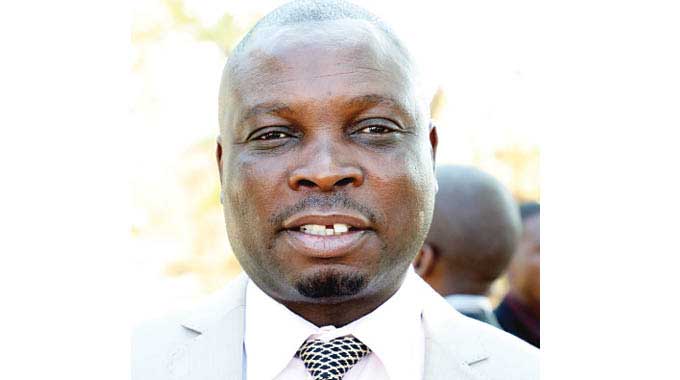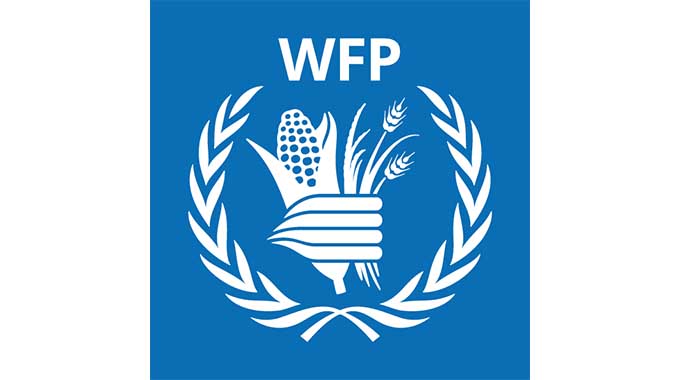Government called to step in to save communities from drought

Blessing Karubwa, Features Reporter
LOW rainfall in the 2021-2022 summer season which affected most parts of the country left a number of people in drought-prone Matabeleland region in need of food aid.
The region is one of the worst affected and villagers have been telling tales of how they are struggling with food insecurity in the midst of soaring prices of basic foodstuffs.
Although a handful grew drought-tolerant traditional grains to counter the effects of climate change, they didn’t harvest much.
The Government and development partners have, been encouraging the cultivation of traditional crops in the wake of shifting rainfall patterns but there has been a low uptake.

Farmers argue that small grain crops are labour-intensive and are less marketable compared to maize.
Traditional leaders in the region have therefore, appealed to Government and its partners to come to the aid of villagers who are faced with the effects of climate change.
Chief Mabhena of Nyamandlovu in Umguza District, Matabeleland North province said there were a number of people who were vulnerable to drought and needed to be assisted.
The chief said there were heavily depleted stocks in the Isiphala senkosi and councilors in the district have been trying to source food from Government for the affected families especially child headed ones.
“People are now buying mealie-mealie and it is becoming expensive.
I cannot give the accurate numbers right now but I can confidently say many people are in need of food aid.
From my area of jurisdiction, I only have a few people who managed to grow sorghum, but they did not get a bumper harvest.
They need assistance as well.
The Government should come up with plans of mitigating the drought,” he said.
A headman in Dlula village under Chief Gampu in Tsholotsho, Mr Nison Mlilo, said they were appealing for food aid to avert drought challenges in his area.
“Some families are now going for days without eating and as I speak, we are in a meeting with the chief trying to see if we can source something for the vulnerable families.
We are appealing to the Government and well-wishers to help us.
We have not yet gotten assistance from any of the food programs,” he said.
Chief Gampu concurred saying Government should intervene.
Nkayi South’s Chief Dakamela said more than 800 households under his area of jurisdiction were food insecure.
He said there have been no food programmes yet to assist vulnerable families.
“The whole of Nkayi has been hit by drought.
Right now, there are 860 families that need food assistance.
Among them are 100 families whose situation is critical.
There is an urgent need for food assistance,” said the chief.
Nkayi district is regarded as one of the most impoverished areas in the country and needs support to improve livelihoods.
He said some villagers grew drought-resistant crops while others did not, arguing that they attract birds that destroy the crops.

Chief Dakamela said the villagers were gradually adopting the new farming methods that they were previously reluctant to take up.
“From my area there are a handful of people who grew drought resistant crops.
I know these have security even now, maybe they will need assistance later on.
They are better than others,” he said.
Chief Skhobokhobo echoed the same sentiments saying he had started distributing food from the Isiphala senkosi to the already desperate families.
Isiphala senkosi was initiated by traditional leaders to guarantee food security to vulnerable families during drought years.
The concept ensures the availability of food to cater for recurrent droughts and climate change-induced dry spells.
“There are more than 1 000 people that are currently in need of food aid.
There are families that need urgent assistance.
“We have started feeding some families from last year’s grain. In the rural areas people help each other, they cannot leave one of them going for days without eating.
However, the situation now needs urgent attention, the numbers of people in need of food are growing,” he said.
Nkayi district development co-ordinator Mrs Matilda Mlotshwa said the Zimbabwe Vulnerability Assessment Committee (ZimVAC) recently concluded the assessment and was yet to present the number of vulnerable people in the district.
ZimVAC is a technical advisory committee comprising representatives from the Government, development partners, the United Nations (UN), Non-Governmental Organisations (NGOs), technical agencies, and the academia.
Mrs Mlotshwa said they were waiting for the number of people in need of food aid before seeking help.
“There are several programs that have been going on to assist people but currently we are waiting for the figures from where we will start assisting people,” she said.
Matabeleland North Provincial Affairs and Devolution Minister Cde Richard Moyo, said the Government ha said that no Zimbabwean would starve.

Matabeleland North Provincial Affairs and Devolution Minister Cde Richard Moyo
He said the responsible Government departments were already working to ensure speedy distribution of food to the already desperate families.
“We received the report concerning families in need of food aid and we will start giving out food aid very soon.
I am sure some areas have started receiving food,” said Cde Moyo.
Acting Provincial Social Development Officer Mr Mugove Mapanga, said the ministry started the food-deficit mitigation strategy program in October last year and ended in March this year.

Acting provincial social development officer Mr Mugove Mapanga
Mr Mapanga said after March they recognised the need to continue distributing food to the vulnerable families so they requested the extension of the World Food Program (WFP) to April but the programme was not extended.
Mr Mapanga said some districts especially Binga, a WFP district, had no master registers for all vulnerable beneficiaries hence the targeting process was not done jointly with the department of social development making it difficult for other food distributing organisations to get in and assist.
“The Government was giving out food in Umguza and Bubi districts for six months and also Lupane and Nkayi for them first two months.
World Food Program and implementing partners were complementing the Government in Tsholotsho, Hwange, Binga and Lupane, and Nkayi in the third month.

“Our rations as per policy are 10 kg maize mealie meal per person per month.
Our other part had vegetable oil plus mealie meal.
They gave seven kilogrammes per person.
The Food Deficit Mitigation Strategy runs for six months and the previous cycle was from October to March.
We have just completed ZimVAC to ascertain the extent of need,” he said.
He said recently the National Aid Network of Zimbabwe assisted 300 elderly households in Binga District with food hampers.
“Self-targeting and community ranking at ward level then the district drought relief community identifies and allocates several beneficiaries according to ZimVAC results.
The committee together with the social development do verifications. Some cases are tested though, especially our traditional clients,” he added.
He says the department will take on board four WFP-supported districts during this period and the total number of beneficiaries will be more than 300 000.
“In March 71 786 people in Binga district were given food by the Agriculture and Rural Development Authority, 18 091 out of 26 092 people in Bubi district were given food by the Government, 25 839 in Hwange district given food by World Vision.
“In Lupane 41 005 out of 41 060 were given food by the Hope Of A Child In Christ (HOCIC) and the Government, in Nkayi 49 550 people were given food by World Vision and 51 619 people in Tsholotsho district were given food by the LEAD, while 41 195 people in Umguza district were given food by the Government,” he said.
Mr Mapanga said food security in Zimbabwe for the 2021/22 consumption year was much better compared to last year.
@ BlehKarubwa












Comments